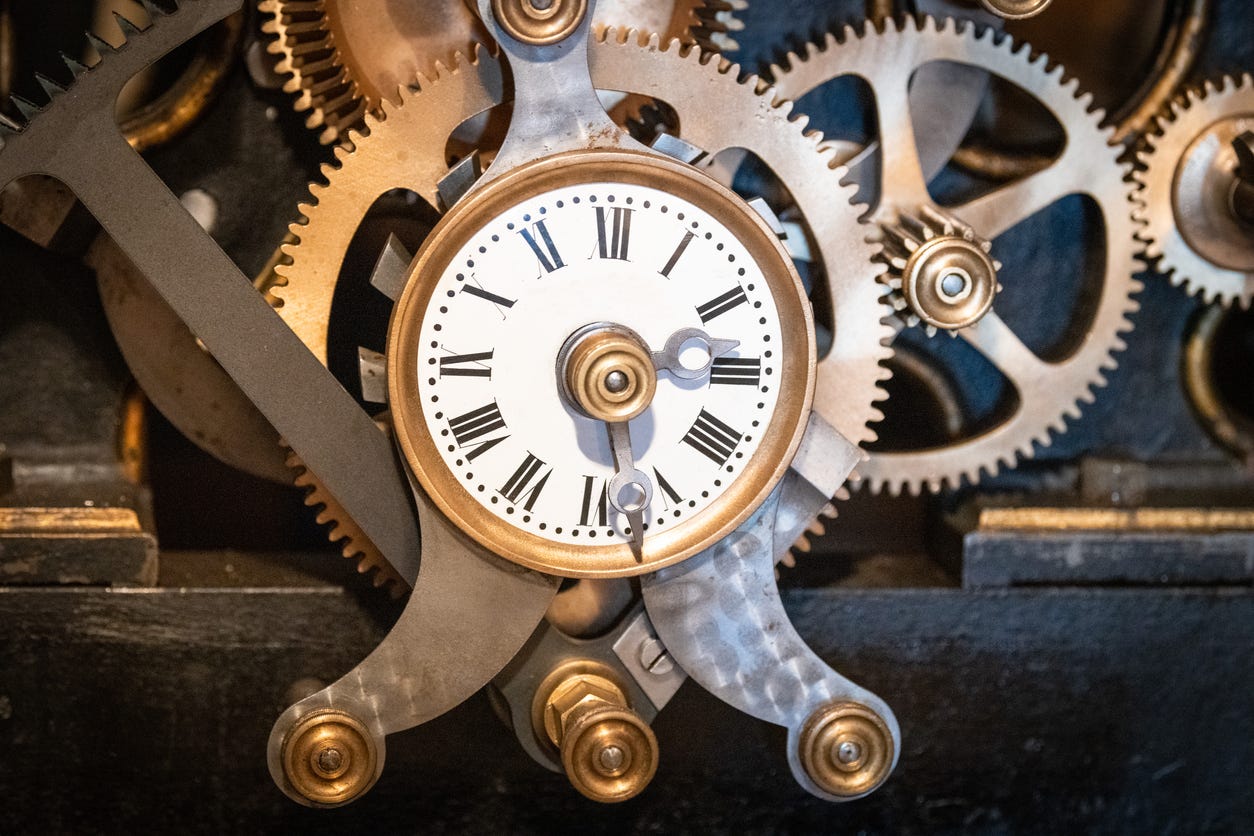The Missing Chinese Mechanical Clocks
The implications of European technological lead in the making of mechanical clocks in the Early Modern period
The mechanical clock was a unique innovation of medieval Europe. Already in 1309 there was a clock made of iron installed at the church of St. Eustorgio in Milan that struck the hour. That mechanical clocks got developed in medieval Europe is puzzling in many ways. In that time period the continent was considered backwards compared to advanced Muslim, Chinese and Indian civilizations.
I want to dig into this apparent contradiction and attempt to answer two important questions in this story:
Did the European mastery of clockmaking have any tangible benefits? Did the clock give any kind of strategic advantage to Europe relative to other advanced civilizations, such as China?
Why did mechanical clockmaking evolve in Europe, but not elsewhere?
Being able to measure time accurately is important in astronomy and navigation. Advancements in astronomy allowed Europeans to master ocean navigation rather than merely following the coastline. The mechanical clock thus played a significant role in securing European dominance on the seas and control trade networks all over the world.
A well-informed reader may object by stating that the Chinese had sundials and water clocks. However, neither clock work well at sea. Sundials are useless at night, which is when an astronomer needs a way of measuring time. Water clocks have limited accuracy. Perhaps more importantly, neither sundials nor water clocks help establish experience in working with precise and delicate machinery. The European mechanical clock revolution led to a development of sophisticated scientific instruments, frequently made by clockmakers.
The later industrial revolution would often rely on complex machinery developed by clockmakers.
Why Did Europeans Start Making Clocks?
Medieval Europe has typically been dismissed as a period where no innovation happened. I believe part of the reason for this perspective is that arts, science, and literature did not make the kind of progress it had made in antiquity. However, medieval Europe saw far stronger development in practical tools and mechanical devices than the Roman and Greek period that preceded it. Medieval Europe used water and windmills extensively, while Romans and Chinese rarely used them. Mills have complex gear mechanisms, just like a clock.
We can see some of the mental connections between mills and clockwork from poetry back in medieval times. In the 14th century a Welsh poet, Daefydd, wrote the following about clocks:
Woe to the black-faced clock on the ditch-side which awoke me
A curse on its head and tongue, its two ropes and its wheel,
Its weights, heavy balls, its yards and its hammer,
It ducks which think it day and its unquiet mills.
Uncivil clock like the foolish tapping of a tipsy cobbler,
A blasphemy on its face ... dark mill grinding the night.
I could not help but notice that the poet sees the connection between mills and clock as natural. Rather than a mill grinding grain, the poet describes a clock as a mill "grinding the night."
NOTE: non-subscribers can continue reading story on Medium.com
Keep reading with a 7-day free trial
Subscribe to Erik Examines to keep reading this post and get 7 days of free access to the full post archives.




